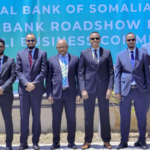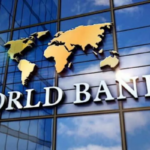African national oil companies (NOCs) are adopting various financing strategies to advance oil and gas projects amid changing global energy markets. These strategies include privatisation, divestment, bond issuances, joint ventures, development finance, and resource-backed loans. By implementing these methods, NOCs are strengthening their financial capacity and ensuring continued investment in the sector.
The African Energy Week: Invest in African Energies 2025 conference, scheduled for 29 September to 3 October in Cape Town, will assess the impact of these financing strategies. The event will bring together global financiers, development institutions, foreign operators, and NOCs to explore opportunities for investment in African energy.
Read also: AfDB plans $500 million facility to unlock $10 bn for African smallholder farmers
Privatisation and divestment
Privatisation and asset divestment are enabling NOCs to streamline operations and attract private capital. By selling stakes in non-core assets and partially privatising, NOCs are raising capital to support oil and gas projects. Angola’s Sonangol is preparing for an Initial Public Offering (IPO), with 30% of the company’s shares expected to be available. The IPO is part of the government’s Propiv initiative, which aims to reform the economy towards a free market. As part of the initiative, 11 of Sonangol’s processes will be made public through tenders and IPOs.
Read also: $100m investment, 2 deals: China-Africa energy cooperation expands with new agreements
Bond issuances and capital market financing
NOCs and governments are turning to international capital markets to raise funds for large-scale projects. Bond issuances originating from Africa exceeded $14.8 billion in the first quarter of 2024. The Africa Finance Corporation coordinated a domestic dollar bond issuance from the Nigerian government, raising $900 million. The bond was 180% oversubscribed, indicating strong domestic investor confidence. Nigeria also issued a $1.7 billion Eurobond in December 2024, which was oversubscribed five times.
Read also: AfDB invests over $8 bn in water infrastructure across Africa
Joint ventures
Joint ventures (JVs) are providing NOCs with capital and foreign technical expertise while spreading financial risk. The Ghana National Petroleum Corporation (GNPC) is pursuing JVs with Eni in 2025 to accelerate oil and gas projects. Ghana’s largest oilfields, Jubilee and TEN, were developed through a JV involving GNPC, Kosmos Energy, Petro SA, and Jubilee Oil Holdings. In Libya, Mellitah Oil & Gas, a JV between the NOC and Eni, produced 403,000 barrels per day (bpd) in 2024. Akakus Oil Operations, a JV between the NOC and Repsol, achieved record production of 306,000 bpd in 2025.
Read also: China-Africa forum discusses energy solutions for 600 million people without power
Development finance and resource-backed loans
Development finance and resource-backed loans are becoming critical for NOCs as access to private capital tightens. The Nigerian National Petroleum Corporation has used oil-backed loans to improve its financial position and is now seeking a $2 billion loan structure to support production growth. The first $1 billion tranche has been secured, with a second tranche under negotiation. Mozambique’s ENH is using development finance to fund gas projects, including the $20 billion Mozambique LNG project. The project is awaiting re-approval for a $4.7 billion loan from the U.S.-Export-Import Bank and has already secured $3 billion in financing from the Japan Bank for International Cooperation. Uganda and Tanzania’s NOCs are seeking $3 billion in debt financing from Chinese lenders, including the Export-Import Bank of China and China Export & Credit Insurance Corporation, to support the East African Crude Oil Pipeline.
“African NOCs are deploying a diverse range of financing strategies to ensure continued investment in oil and gas projects. From privatisation and asset sales to bond issuances, joint ventures and development finance, NOCs are adapting to evolving market conditions while securing the necessary capital to sustain exploration and production,” states Ore Onagbesan, Programming Director, African Energy Chamber.








